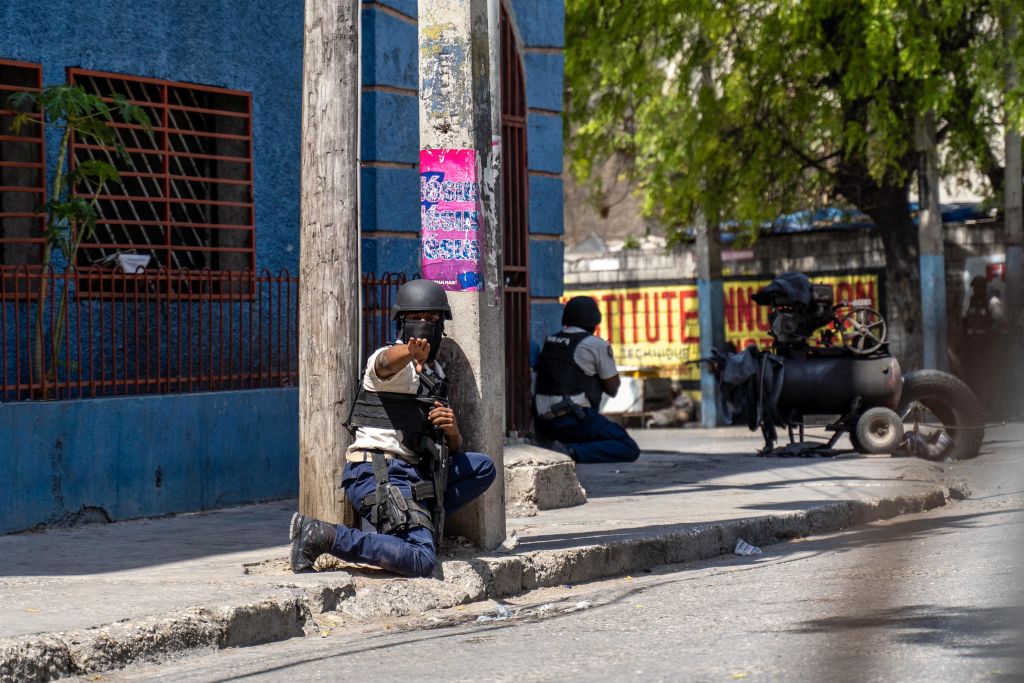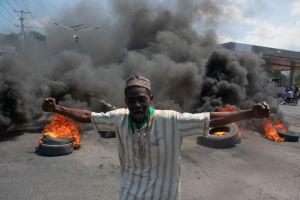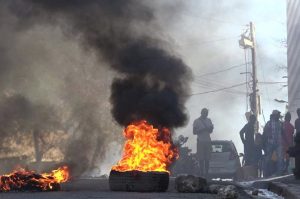Haiti tends to not get much attention in the American press, but it should. The country has descended into a state of near-anarchy, with gangs ruling the streets and the government more or less nonfunctional. There has not been an election since 2016, and both the legislative and executive branches of government have no elected officials in office.
The country has been ruled by an unelected prime minister, Ariel Henry, since the July 2021 assassination of President Jovenel Moïse. Elections are tentatively planned for this year, but the timeline is not yet set. The crisis in Haiti is a problem for the whole region, including the United States.
After the nightmares of the Duvalier regime, which visited an incredible degree of oppression and suffering upon Haitians, Haiti began its transition to democracy in 1986. But stable governance was not to be. A coup in 1991 resulted in an international military intervention in 1994, and another coup in 2004 saw intervention again. The legitimacy of elections are regularly challenged. Geography, too, brings trouble: in 2010, a massive earthquake killed more than 200,000 people, with much of the damage still not repaired.
The current crisis, however, has its roots in 2018, when it came to light that multiple governments had been engaged in widespread corruption regarding what’s known as the PetroCaribe scheme. PetroCaribe was a program whereby Venezuela would sell oil to countries at a significant discount, to be repaid at a later date, with the beneficiaries then selling the oil and using the profits for various government projects. Given the endemic corruption in Haitian politics, it should be no surprise that large portions of the revenue ended up in politicians’ pockets.
When news of the scandal broke, massive protests began calling for the country’s president, Jovenel Moïse, to leave office. He did not, and the country began to spiral out of control. Elections were not held on schedule, leaving the legislative branch with only ten senators (and in 2023, zero). In the absence of a working legislative body, Moïse chose to rule by decree. Gangs took control of the streets.
Making matters worse that it was not clear when Moïse’s term ended — February 2021 or February 2022. He was elected in November 2016, but only because the 2015 elections had been voided. Some felt that his term began with the 2015 elections, while others argued it started with the 2016 elections. While he stayed in office beyond February 2021, it was not to last. On July 7, 2021, Moïse was assassinated in the presidential residence. Shortly thereafter, another major earthquake shook the country, killing more than 2,000 people.
Prime Minister Ariel Henry took the reins of government after Moïse’s death and has ruled ever since. The two major political factions — Henry’s and a large opposition group consisting of civil society groups and various political parties — have been dueling over how to move forward. The opposition agreed upon the Montana Accord in 2021, which was supposed to create a transitional government, but Henry was not interested. Instead, he released plans in December 2022 to hold elections some time in 2023, but the process has been severely hampered by political fighting and violence.
Gangs control large swaths of the country, with the Haitian National Police (HNP) unable to reestablish authority. Last October, Henry took the extraordinary step of asking for an international military intervention to reassert state control. It is so bad that some argue that negotiating with the criminal organizations may be necessary. Either way, something must be done, because elections cannot be carried out in an environment where violent gangs control access to the polls and government forces cannot guarantee voters’ safety. Compounding the situation is the lack of food supplies and healthcare, leaving millions of Haitians vulnerable to disease. Housing for many is still nonexistent after the 2021 earthquake, and the economy is in tatters.
The government in Port-au-Prince, for its part, does not have the capacity to do much about any of these problems. And while the US has shown itself reluctant to intervene, it will be unable to escape the consequences of a destabilized Haiti — see the 2021 increase in Haitian refugees, for example. There are likely to be well over 200,000 Haitians residing in the US under Temporary Protected Status by the program’s expiration in August 2024.
The UN has been involved in Haiti for years, while the US, in partnership with a select group of nations, has also been a key player. Nonetheless, little long-term progress has been made. Currently, the plan set forth by the international community has three parts. The first involves sanctions on those creating the chaos in Haiti, the second entails increased support for the HNP, and the third is some kind of security assistance to help restore order and facilitate the delivery of aid. Biden, during his recent trip to Canada, was expected to broach the subject of intervention with Prime Minister Justin Trudeau, although Ottawa is apparently not too keen on the idea.
Another key goal is to get Haitian social and political leadership to settle upon a consensus path forward for the country’s democracy. Though difficult, this will be the most important step, because as long as there is extensive division in the political system, there will be little hope of resolving Haiti’s root issues.
Regardless, the current situation in Haiti is untenable, both on a moral and a practical level. The consequences of a failed state for Haiti’s people and the region will be immense. A multinational intervention is not and should not be the first resort, but if it is necessary to prevent Haiti’s collapse, there may not be any other choice.


















